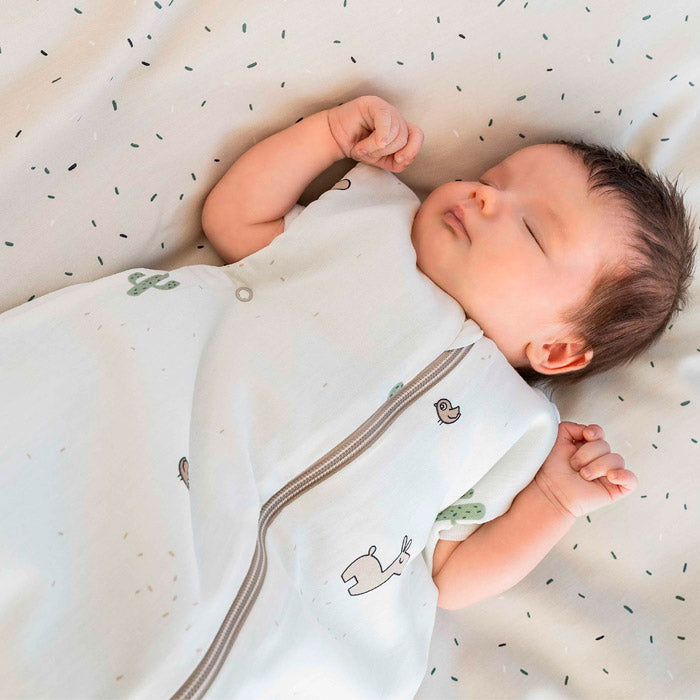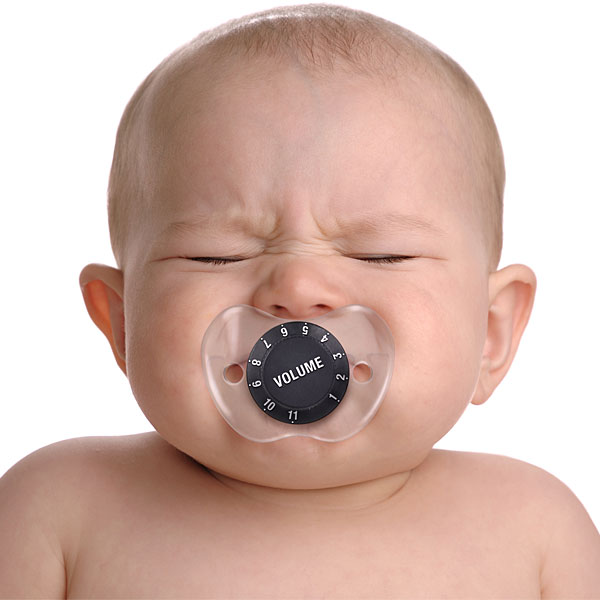Common Causes of Night Sweats in Toddlers
Why does my toddler sweat so much when sleeping? Night sweats in toddlers are not uncommon. There are several reasons why your little one might be sweating more during sleep. Here are some common causes:

- Warm sleeping environment: A room that’s too hot can make your child sweat.
- Heavy bedding: Thick blankets can trap heat and cause sweating.
- Over-bundling: Too many clothes can lead to overheating.
- REM sleep: Toddlers spend more time in REM sleep, which can increase sweating.
- Immature nervous systems: Young children cannot regulate their body temperature as well as adults.
- Respiratory infections: Illnesses like colds can make a child sweat more.
- Sleep apnea: This sleep disorder can cause sweating due to disrupted breathing.
Understanding these causes can help you identify why your toddler might sweat during the night. Adjusting the sleep environment and consulting healthcare providers is important if concerned.
Signs and Symptoms Accompanying Toddler Night Sweats
Toddler night sweats can involve more than just sweating. Look for other signs too. These might include restlessness, fussiness, or disruption of sleep. Here are additional symptoms that may appear with night sweats:
- Damp sheets and pajamas: Often, the bedding and sleepwear are wet to the touch.
- Chills: Your toddler might shiver despite the sweat.
- Thirst: They may wake up needing water more often.
- Increased heart rate: You might notice their heart beats faster.
- Dry mouth: Alongside sweating, their mouth may feel dry.
These symptoms can signal that your toddler’s body is working hard during sleep. Sometimes, they point to simple discomfort. Other times, it could hint at health issues like infections.
If your toddler often wakes up sweaty, assess their sleep conditions. Ensure their room isn’t too hot and their pajamas are light. But if you see other symptoms like fever, cough, or rapid breathing, contact your doctor. These could be hints of something needing medical attention.
Regular sweating can be due to a warm room or thick bedding. If adjusting these doesn’t help, or if sweating is extreme, seek advice. Remember, while some sweating is normal, persistent signs deserve a closer look.
The Link Between Sleep Stages and Sweating in Toddlers
Understanding the sleep stages of toddlers reveals much about their night sweating patterns. During the REM or rapid eye movement stage, toddlers are in their deepest sleep. This is when the body is most active, dreaming occurs, and sweating can increase.

What is REM Sleep?
In REM sleep, the brain is highly active, similar to when one is awake. During this stage, toddlers’ heart rates rise, and their breathing can become irregular. These bodily reactions can lead to more sweat production as the body works harder.
Why REM Sleep Causes Sweating
Toddlers spend more time in REM sleep than adults. Their immature nervous systems do not regulate temperature as effectively. This means they can sweat more even if the room is cool.
Body Temperature Regulation in Toddlers
A toddler’s body is still learning to control temperature efficiently. Their bodies might overreact with sweat to minor changes in temperature during different sleep stages.
Signs of Sweating During REM Sleep
Why does my toddler sweat so much when sleeping? You might notice your toddler sweating during naps or in the early parts of the night. These are times when REM sleep often occurs. Watch for damp hair or a sweaty forehead as these can be signs of REM-related sweating.
Understanding these sleep stages and temperature regulation helps explain why your toddler might sweat more at night. Making them comfortable during sleep is key, such as using light bedding and keeping their room cool. If you’re ever in doubt about your toddler’s night sweats, seeking a healthcare professional ensures their health is on track.
Health Conditions Associated with Excessive Night Sweating
Excessive night sweating in toddlers might sometimes signal underlying health issues. It’s crucial to observe and understand these symptoms to ensure proper care.
Common Medical Conditions Linked to Night Sweats
Several health conditions can cause severe night sweating in young children:
- Infections: Conditions like colds or respiratory infections can lead to increased body temperatures and sweating.
- Sleep disorders: Disorders such as sleep apnea disrupt breathing, causing frequent awakenings and sweating.
- Hyperhidrosis: This condition involves abnormal, excessive sweating, not linked to heat or exercise.
Syndromes Affecting Autonomic Nervous System
Some syndromes affect how the nervous system regulates body functions, including sweating:
- Familial dysautonomia: This rare genetic disorder disrupts automatic bodily functions such as temperature and blood pressure regulation.
- Ross syndrome: Another rare condition that leads to decreased reflexes and sweating abnormally.
Hormonal Imbalances
Certain hormonal issues can also lead to excessive sweating:
- Hyperthyroidism: An overactive thyroid gland speeds up metabolism, often leading to overheating.
- Pheochromocytoma: This rare tumor affects adrenal gland hormones, increasing sweating.
Serious Illnesses Signaled by Sweating
Night sweats might also hint at severe illnesses:
- Cancer: Certain types such as lymphoma may show symptoms like night sweats.
- Infections like tuberculosis: These serious infections can cause sweating during the night.
Identifying these conditions early can lead to timely and effective treatment. If your toddler experiences persistent or extreme night sweating, consultation with a healthcare provider is advisable.
Practical Tips for Managing Toddler Night Sweats at Home
Managing your toddler’s night sweats can be simpler than you think. Why does my toddler sweat so much when sleeping?Here are some tips to help:
- Dress Them Appropriately: Use one layer of breathable cotton pajamas for sleeping.
- Optimize Bedroom Temperature: Keep the room between 65 and 70 degrees Fahrenheit.
- Bedding Material: Choose sheets and blankets that are light and made of natural fibers.
- Avoid Overheating: Don’t pile on too many blankets, even in winter.
- Hydration: Ensure they drink enough water during the day.
- Air Circulation: Use a fan or keep a window open to allow airflow.
- Monitor Health: Watch for signs of infections or respiratory issues.
By following these straightforward steps, you can improve the sleep quality of your sweaty slumberer. If issues persist despite these adjustments, consider seeking advice from a pediatrician.

How to Differentiate Between Normal Sweating and Causes for Concern
As a parent, you want to know when toddler night sweats are normal or worrisome. Why does my toddler sweat so much when sleeping? Here’s how to tell:
Look for Patterns of Sweating
Observe when your toddler sweats. Is it on hot nights or does it happen regardless of temperature? Regular, patterned sweating on warm nights can be normal. Random, excessive sweating could be a concern.
Check the Intensity
Feel your toddler’s sweat. Is it a light dampness or are they soaking wet? Mild sweating is typical, but drenched pajamas and sheets need attention.
Monitor for Other Symptoms
Watch for other signs. Is your child just sweaty, or also feverish and unwell? Extra symptoms like fever or coughing suggest you consult a doctor.
Pay Attention to Behavior
Notice their behavior. If they are sweaty but active and happy, it’s likely fine. If they are lethargic or cranky, you may want to see a healthcare provider.
Consider the Sleep Environment
Look at their room and bedding. Are they sweating because of a warm room or heavy blankets? Fixing these might solve the issue. If not, it might be something else.
By checking for these signs, you can see if your toddler’s night sweating is usual or if you might need a doctor’s help.
When to Consult a Healthcare Professional About Your Toddler’s Night Sweats
Deciding when to call a doctor about toddler night sweats can be tricky. Here are clear indicators that it’s time to seek professional advice:
- Frequent, Intense Sweating: If night sweats happen regularly and are intense enough to soak pajamas or bedsheets, it’s a sign to consult a doctor.
- Accompanied By Other Symptoms: Watch for additional signs such as fever, persistent cough, breathing difficulties, or significant irritability. These could hint at underlying health issues.
- Lack of Response to Home Adjustments: If simple home remedies, like adjusting the temperature of the room or changing pajamas, don’t reduce the sweating, professional advice may be needed.
- Influence on Sleep Quality: Consider how much the sweating affects your toddler’s sleep. Frequent awakenings or discomfort might require a healthcare provider’s intervention.
- Sweating Outside Night Time: If your toddler also sweats excessively during the day, this could point to a more serious condition requiring medical evaluation.
If you observe one or more of these issues, it’s wise to book an appointment with your pediatrician for a proper assessment and guidance. Early detection and management can ensure your toddler maintains optimal health and comfort.
Key Takeaways for Parents Dealing with Toddler Night Sweats
Dealing with toddler night sweats can be stressful for parents. Why does my toddler sweat so much when sleeping? Here are some key takeaways to help you manage this common issue effectively:
- Understand Common Causes: Know that reasons like warm environments, heavy bedding, and natural REM sleep cycles often lead to sweating.
- Identify Symptoms of Concern: Besides sweating, look for fever, unusual restlessness, or cough. These might indicate an underlying health condition.
- Adjust the Sleeping Environment: Ensure the room is cool (between 65 and 70 degrees Fahrenheit) and use breathable cotton bedding. Avoid excessive clothing or blankets.
- Monitor and Respond: Regularly check on your toddler at night. Adjust their environment as needed, and keep them hydrated.
- When to See a Doctor: Consult a healthcare professional if night sweats are frequent, intense, accompanied by other symptoms, or if your toddler’s sleep is consistently disrupted.
By taking proactive measures and observing your child closely, you can ensure they remain comfortable and healthy. Remember, while night sweats are common, persistent cases that affect your toddler’s health or sleep quality should be evaluated by a professional.



